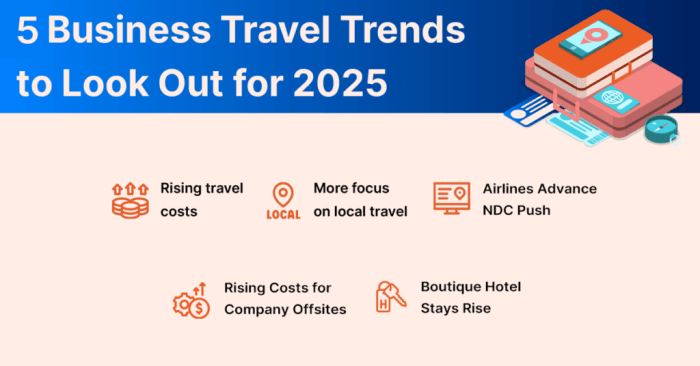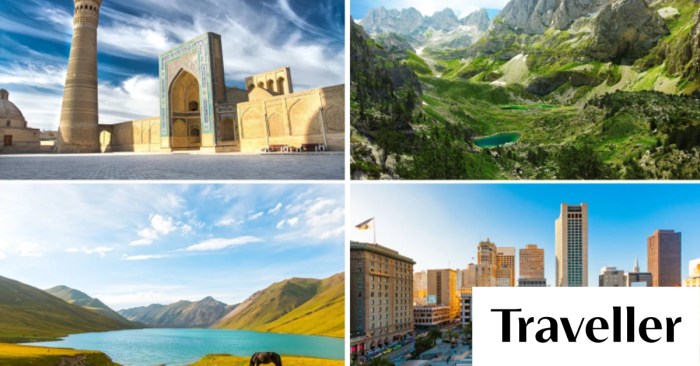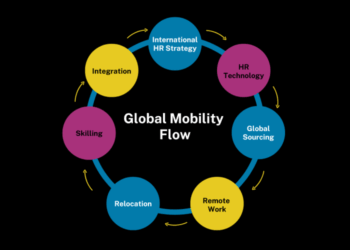Exploring the top business travel destinations in 2025 promises a glimpse into the future of corporate travel. From cutting-edge facilities to sustainable practices, this overview sets the stage for a captivating journey ahead.
As we delve deeper into the specifics, you'll uncover a wealth of information on emerging destinations, sustainable practices, technological advancements, cultural immersion, and safety measures that define the landscape of business travel in 2025.
Top Business Travel Destinations in 2025
As business travel continues to evolve, new destinations are emerging as hotspots for corporate travelers. These top business travel destinations for 2025 offer a unique blend of convenience, amenities, and opportunities for networking and business expansion.
Emerging Business Travel Destinations
1. Lagos, Nigeria: With a booming economy and a growing number of multinational companies setting up operations, Lagos is becoming a hub for business travelers in West Africa.
2. Bangalore, India: Known as the Silicon Valley of India, Bangalore offers state-of-the-art technology facilities and a vibrant startup scene, attracting tech-savvy business travelers.
3. Bogota, Colombia: As one of the fastest-growing economies in Latin America, Bogota is attracting attention from businesses looking to expand into the region.
Factors Contributing to Popularity
- The growing economy and business-friendly policies of these destinations make them attractive for international companies looking to expand.
- Improved infrastructure, including modern airports, high-speed internet, and world-class hotels, enhance the overall business travel experience.
- Networking opportunities and access to industry events and conferences contribute to the appeal of these destinations for business travelers.
Anticipated Business Facilities and Amenities
- State-of-the-art conference centers equipped with the latest technology for meetings and presentations.
- Coworking spaces and business lounges for remote work and networking opportunities.
- Luxury accommodations with business-friendly services such as 24-hour concierge, high-speed Wi-Fi, and in-room workstations.
Sustainable Practices in Business Travel
In recent years, there has been a significant shift towards incorporating sustainable practices in business travel. Companies are increasingly recognizing the importance of reducing their carbon footprint and minimizing the impact of their travel activities on the environment and local communities.
Implementing Green Initiatives
Many businesses are implementing various green initiatives to make their travel more sustainable. This includes options such as using public transportation or electric vehicles, minimizing single-use plastics, and opting for eco-friendly accommodations. By making these choices, companies can significantly reduce their environmental impact and contribute to a more sustainable future.
Impact on the Environment and Local Communities
The choices made in business travel have a direct impact on the environment and local communities. By opting for sustainable practices, companies can help preserve natural resources, reduce pollution, and protect wildlife habitats. Additionally, supporting local businesses and communities through responsible travel can help boost the economy and promote cultural exchange.
Leading Companies in Sustainable Business Travel
Several companies have been leading the way in sustainable business travel practices. For example, Google has committed to carbon neutrality for all flights booked through their travel system. Microsoft has also set ambitious sustainability goals, including becoming carbon negative by 2030.
These companies are setting a positive example for others to follow in integrating sustainability into their business travel strategies.
Technological Advancements in Business Travel

Technology is revolutionizing the way we approach business travel, offering innovative solutions to enhance efficiency and convenience for travelers. From AI-powered travel assistants to virtual reality conferencing, the integration of technology is reshaping the business travel experience.
Role of AI in Business Travel
AI has become a game-changer in business travel, providing personalized recommendations, itinerary management, and real-time assistance to travelers. With AI-powered chatbots, travelers can receive instant support, book accommodations, and access relevant information seamlessly.
Virtual Reality in Business Meetings
Virtual reality technology is transforming the way business meetings are conducted, allowing participants to engage in immersive virtual environments from anywhere in the world. This technology eliminates the need for physical travel, reducing costs and carbon footprint while enhancing collaboration and communication.
Benefits and Challenges of Increased Technological Integration
The increased integration of technology in business travel offers numerous benefits, including improved productivity, cost savings, and enhanced traveler experience
Cultural Immersion in Business Travel
In today's globalized world, cultural immersion plays a crucial role in successful business travel. Understanding and respecting the culture of the destination you are visiting can lead to stronger relationships, better negotiations, and overall business success.
Strategies for Engaging with Local Cultures
- Learn the basics: Before your trip, take the time to research the local customs, traditions, and etiquette. This shows respect and can help you avoid unintentional cultural missteps.
- Connect with locals: Interact with local people, whether it's through networking events, cultural activities, or simply exploring the city. Building personal relationships can go a long way in business.
- Try local cuisine: Food is a central part of any culture. Be open to trying traditional dishes and dining at local restaurants to immerse yourself in the culinary customs of the region.
Impact of Cultural Understanding on Business Relationships
- Building trust: By demonstrating cultural awareness and respect, you show your business partners that you value their way of life. This can help establish trust and credibility in your professional relationships.
- Effective communication: Understanding the cultural nuances of your counterparts can help you communicate more effectively. It can prevent misunderstandings and promote clearer dialogue during negotiations.
- Enhanced collaboration: Embracing and celebrating cultural differences can lead to stronger collaboration and innovation. It fosters a more inclusive and diverse work environment, which can benefit your business in the long run.
Business Travel Safety and Security
In the ever-changing landscape of business travel, safety and security are paramount for any traveler. With new challenges emerging, it is essential to stay informed and prepared to ensure a safe and secure business travel experience.
Evolving Safety and Security Measures
As technology advances, so do safety and security measures in business travel. Companies are implementing advanced tracking systems, emergency response protocols, and data encryption to protect their employees while traveling.
Common Risks and Mitigation Strategies
- Physical Threats: Business travelers may face risks such as theft, assault, or natural disasters. To mitigate these risks, travelers should stay aware of their surroundings, secure their belongings, and have emergency contacts readily available.
- Cybersecurity Threats: With the rise of digital transactions, travelers are vulnerable to cybersecurity threats. Using secure networks, avoiding public Wi-Fi for sensitive activities, and updating security software can help mitigate these risks.
Tips for a Safe Business Travel Experience
- Research Destination: Before traveling, research the destination's safety and security situation, including local laws and customs.
- Stay Connected: Maintain regular communication with colleagues, family, or friends during your trip.
- Travel Insurance: Invest in comprehensive travel insurance that covers medical emergencies, trip cancellations, and other unforeseen events.
- Emergency Plan: Develop a clear emergency plan outlining steps to take in case of any safety or security threat.
Wrap-Up

In conclusion, the world of business travel in 2025 is a dynamic and evolving one. By staying informed about the latest trends and embracing new opportunities for growth and cultural understanding, travelers can navigate this landscape with confidence and curiosity.
Detailed FAQs
What are some common risks faced by business travelers in 2025?
Common risks include cybersecurity threats, health emergencies, and political instability in certain regions. It's essential for travelers to stay vigilant and informed to mitigate these risks effectively.
How can business travelers engage with local cultures effectively during their trips?
Business travelers can engage with local cultures by learning about the customs and traditions of the destination, participating in cultural activities, and respecting local norms and practices. Building genuine connections with locals can enhance the overall travel experience.
Which companies are leading the way in sustainable business travel practices?
Companies like Google, Microsoft, and IBM are recognized for their commitment to sustainable business travel. They implement eco-friendly policies, promote carbon offset programs, and prioritize environmentally conscious travel choices.












